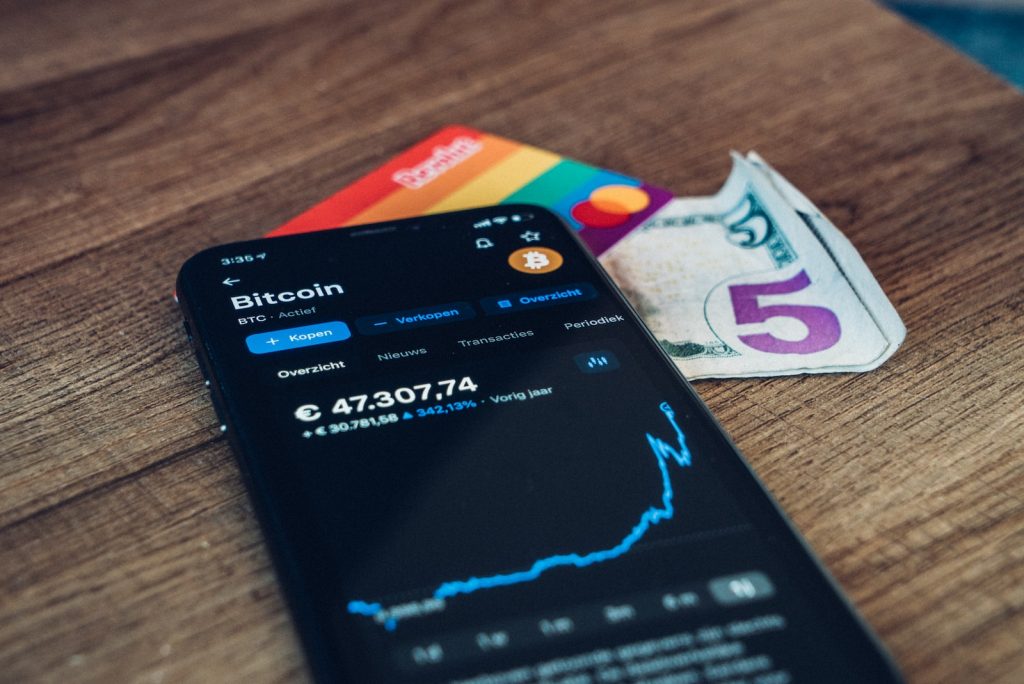To truly understand the added value Bitcoin can bring to society, it is first advisable to look at the current problems prevailing in today’s society.
Problem 1 – High Resource Consumption –
We need solutions that reduce resource consumption worldwide!
The current global overproduction of goods and, consequently, the massive resource consumption has been made possible by the massive expansion of the money supply and low-interest rate policies in recent years.
Sustainable businesses have been penalized in recent years!
With the cheap money of recent years, the production capacity of various companies was massively expanded through debt. Furthermore, companies were able to gain an advantage over sustainable businesses or even completely push other market participants out of the market through significant debt leveraging, enabled by better access to the capital market due to cheap money.

Problem 2 – Reduction of Living Standards –
Expropriation of citizens through inflation and thus a reduction of purchasing power = reduction of living standards!
The low-interest rates have also led to enormous price increases, especially in tangible assets such as real estate. When, as a result of increased inflation, interest rates must be increased, heavily indebted companies, in particular, face great difficulties in refinancing themselves. This now forces the state to intervene to protect the economy from collapsing with subsidies and financial injections. If they are structurally critical companies, they are even directly supported with taxpayers’ money. This is financed by the expansion of the money supply. The money supply expansion generated by the state, or the ECB, together with central banks, takes away purchasing power from its citizens in the form of inflation and further promotes unequal distribution of wealth because the state now supports companies and industries with strong lobbying and high media presence more than others.
The state forces citizens into risky investments to maintain their purchasing power.
For inflation compensation and maintaining purchasing power, citizens are then forced to invest in riskier investment vehicles, such as stocks, ETFs, etc., in the hope of preserving their purchasing power. Those who do so are then shaved by large institutional investors during weak economic phases when the market falters. This is because these investors leave the market in such periods, causing prices to fall. Private investors are usually at a disadvantage because they are informed much later and can react only later. They are then forced to liquidate some of these investments, for example, to cover higher rents or living costs or to re-mortgage properties, resulting in significant financial losses.
Problem 3 – Increasing Income Inequality –
This mechanism has an even stronger impact in countries where citizens have limited or no access to the capital market. If the currency of these countries depreciates against major currencies like the dollar, imported goods, especially raw materials like oil and other commodities, become more expensive. In countries heavily dependent on imported goods, this inflation causes significant problems due to short-term price fluctuations of goods and food.

Solution through Bitcoin
How can Bitcoin contribute to solving these problems?
- Bitcoin is a stable store of value
Bitcoin enables, for the first time in human history, people to store the energy and lifetime invested in the form of work in an asset that is not devalued by central entities (governments, companies, or other authorities) through expansion of supply or other market mechanisms. Bitcoin is strictly limited to a quantity of approximately 21 million units. This means that one Bitcoin will always be 1 out of 21 million and, therefore, will remain constant in value. Only the price, measured in dollars or euros, is currently subject to significant fluctuations. This is because it is still a very young and not widely distributed store of value (compared to stocks, gold, currencies, real estate, etc.).

- Bitcoin is an unlimited, global medium of exchange (money)
Bitcoin is merely a cryptographically determined key (private key) that allows the quantity of Bitcoin in possession to be tracked globally through small, synchronized computers (nodes). These nodes are databases on which the entire transaction history (blockchain) and the rules of the network are stored. In a transaction, a new record is calculated (block) according to a predefined cryptographic calculation logic by high-performance computers (miners), confirming the previous transaction history and recording the change in ownership in the blockchain. Miners receive a reward for the computing work performed in the form of Bitcoin. The Bitcoin is created by the miners according to a computation methodology specified in the Bitcoin protocol (max. up to 21 million units).

The points presented above are intentionally presented as theses and will be progressively substantiated with data, facts, and source references in the following posts.
However, this cannot be done with a single post. Therefore, stay tuned for the following posts to better understand Bitcoin and grasp its full potential.
